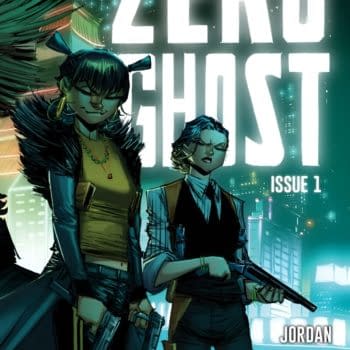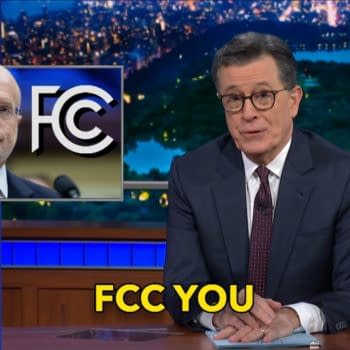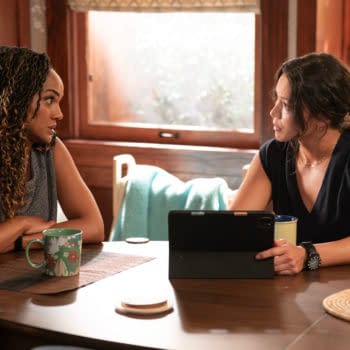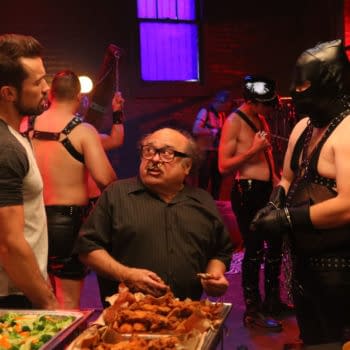Posted in: BBC, Doctor Who, TV | Tagged: christopher eccleston, Daniel Anderson, David Tennent, doctor who, jenna coleman, matt smith, michelle gomez, peter capaldi, steven moffat
Doctor Who Series 8: Making the Case for Peter Capaldi's Flawed Doctor
Let's take a moment to look back at Peter Capaldi's first Doctor Who series, where he played a more prickly and nearly unlikable Doctor.
The BBC has released a compilation video of Doctor Who Series 8, Peter Capaldi's first and Steven Moffat's fourth, and the most experimental and flawed of Moffat's time as showrunner. This was the first time the series broke the modern era's mode of casting a younger Doctor and back to the tradition of an older, patrician lead. Moffat was clearly excited to work with Capaldi and tried something ambitious and complex with the character, ending up with a flawed show that might have caused the viewership numbers to drop for the first time. Yes, we wrote about this before when there was a longer supercut video, but it's worth thinking about again. if the BBC can repeat themselves, so can we.
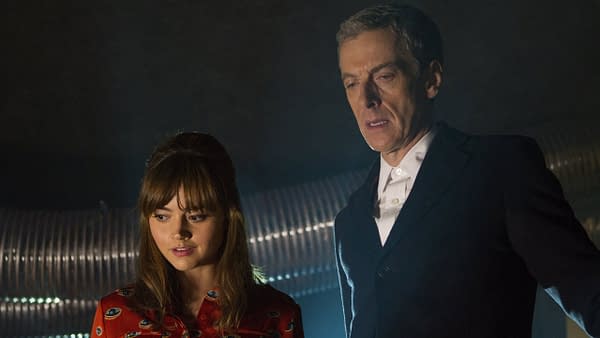
Capaldi's age as the Twelfth Doctor might have turned off many teenage and older female viewers, especially in the US, who were used to having a younger lead like David Tennant and Matt Smith as their fantasy boyfriends. Moffat also tried to create a more "classic" Doctor in Capaldi by making him more remote, aloof, and prickly, bordering on unlikable. The Eleventh Doctor didn't have the immediate warmth and friendliness of Christopher Eccleston's Northern working-class jokiness or Tennant's gleeful Mockney smart alec or Smith's gawky kindness. This Doctor starts out his life with an identity crisis: what kind of Doctor was he? Was he kind? Was he a soldier? Was he a leader? He was almost on the autism spectrum with his bafflement over human emotions and insecurities that could flip to reveal a cold ruthlessness as when he pondered his morality over whether he was going to have to kill a murderous cyborg. This was closer to the original version of William Hartnell's First Doctor, who started out as prickly, aloof, and severe before gradually warming into a kindlier old man as he evolved.
The furthest Moffat or any writer ever pushed the Doctor to the edge of hateful is the moment when Clara's (Jenna Coleman) ex-soldier boyfriend, Danny Pink (Samuel Anderson) accuses The Doctor of being the type of arrogant military leader whose class and privilege enabled them to callousness send men to their deaths. Danny may not know it, but it forces The Doctor to recall his own actions in the Time War, but The Doctor doesn't back down or apologise for his coldness. It's one of the most adult and uncompromising moments in Doctor Who that the character almost never recovers from, especially when the subtext of Danny's resentment suggests he's condemning The Doctor's white privilege as well.
The season also introduces Michelle Gomez as Missy, short for "Mistress," the unforgettable gender-swapped regeneration of the Master. Portrayed as an evil Mary Poppins, Gomez' embodies Moffat's tendency to inject sexual tension into Missy's antagonistic relationship with The Doctor, suggesting a thwarted, toxic love story as well as a hint of kink. It's the kind of unexpected, deranged oddness that keeps the best of Doctor Who unpredictable and unmissable. She also becomes the catalyst for the climax of the Doctor's identity crisis arc this season. He declares himself not a hero or a saviour but an idiot who does the best he can, who refuses power and authority to refute what Danny accused him of being and what Missy wants him to be. This allows Capaldi to become a warmer Doctor the next season in a kind of course correction for this season. Capaldi actually plays a different Doctor in each of his three seasons, but this is the first and oddly flawed season that still had plenty of risk-taking.






